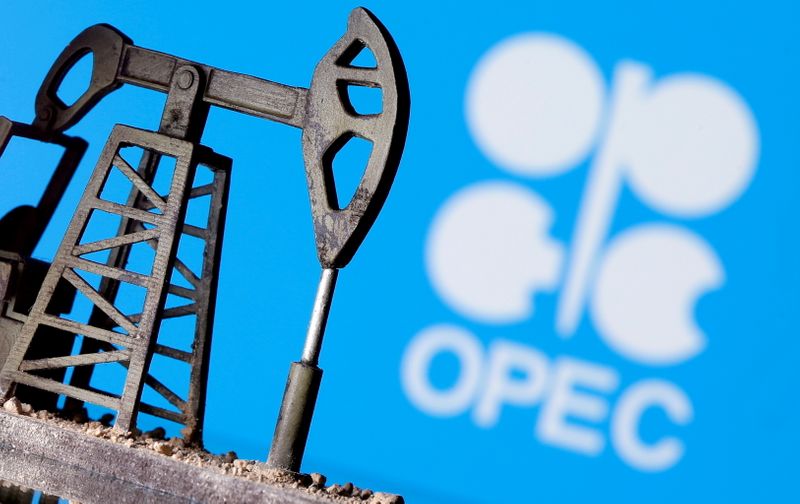(Refiles to add link to Table)
By Alex Lawler
LONDON (Reuters) - The increase in OPEC's oil output in November has again undershot the rise planned under a deal with allies, a Reuters survey found on Tuesday, bringing a lack of capacity in some producers into focus ahead of a policy meeting this week.
The Organization of the Petroleum Exporting Countries (OPEC) pumped 27.74 million barrels per day (bpd) in November, the survey found, a rise of 220,000 bpd from the previous month but below the 254,000 increase allowed under the supply deal.
OPEC and its allies, a group known as OPEC+, are gradually relaxing 2020's output cuts as demand recovers from the pandemic. But many smaller producers can't raise supply and others have been wary of pumping too much in case of renewed COVID-19 setbacks.
OPEC+ meets on Thursday. A U.S.-led release of oil stocks by consumer nations to lower prices and the appearance of the Omicron coronavirus variant have cast doubt whether a 400,000 bpd output boost planned in January will go ahead, analysts say.
"The pressure is growing on OPEC+," said Carsten Fritsch, analyst at Commerzbank (DE:CBKG). Stepping up production by 400,000 bpd in January was "virtually unimaginable in view of the latest market developments," he said.
A drop in oil prices, to $71 by Tuesday - from a three-year high above $86 a barrel in October - has also caused unease, OPEC+ delegates say, although the Saudi energy minister said on Monday he was not worried about Omicron.
The OPEC+ agreement allowed for a 400,000 bpd production increase in November from all members, of which about 253,000 bpd is shared by the 10 OPEC members covered by the deal, OPEC figures seen by Reuters show.
With output undershooting the planned increase, OPEC's compliance with its pledged cuts increased to 120% in November, the survey found, from 118% a month earlier.
OPEC+ is not expected to address the underperformance of some producers by reallocating output targets on Thursday.
SAUDI AND IRAQI BOOST
The biggest rises in November came from OPEC's top two producers, Saudi Arabia and Iraq, which both boosted output largely as promised according to the agreement.
Kuwait, the United Arab Emirates and Algeria also made increases as called for by their higher November quotas. Nigerian output, often hit by unplanned outages, recovered in November as a force majeure was lifted.
Output declined or did not increase in Angola, Equatorial Guinea and Gabon, the survey found, owing to a lack of capacity to produce more.
The biggest decline - 50,000 bpd - was in Angola, where exports hit a record low during the month according to tanker schedules. The second largest was in Libya, one of the countries exempt from OPEC supply curbs, due to pipeline maintenance.

Output in Iran, which has raised exports since the fourth quarter despite U.S. sanctions, was steady in November. Talks to revive its 2015 nuclear deal with world powers, which would allow a larger export recovery, resumed this week.
The Reuters survey aims to track supply to the market and is based on shipping data provided by external sources, Refinitiv Eikon flows data, information from tanker trackers such as Petro-Logistics and Kpler, as well as information provided by sources at oil companies, OPEC and consultants.